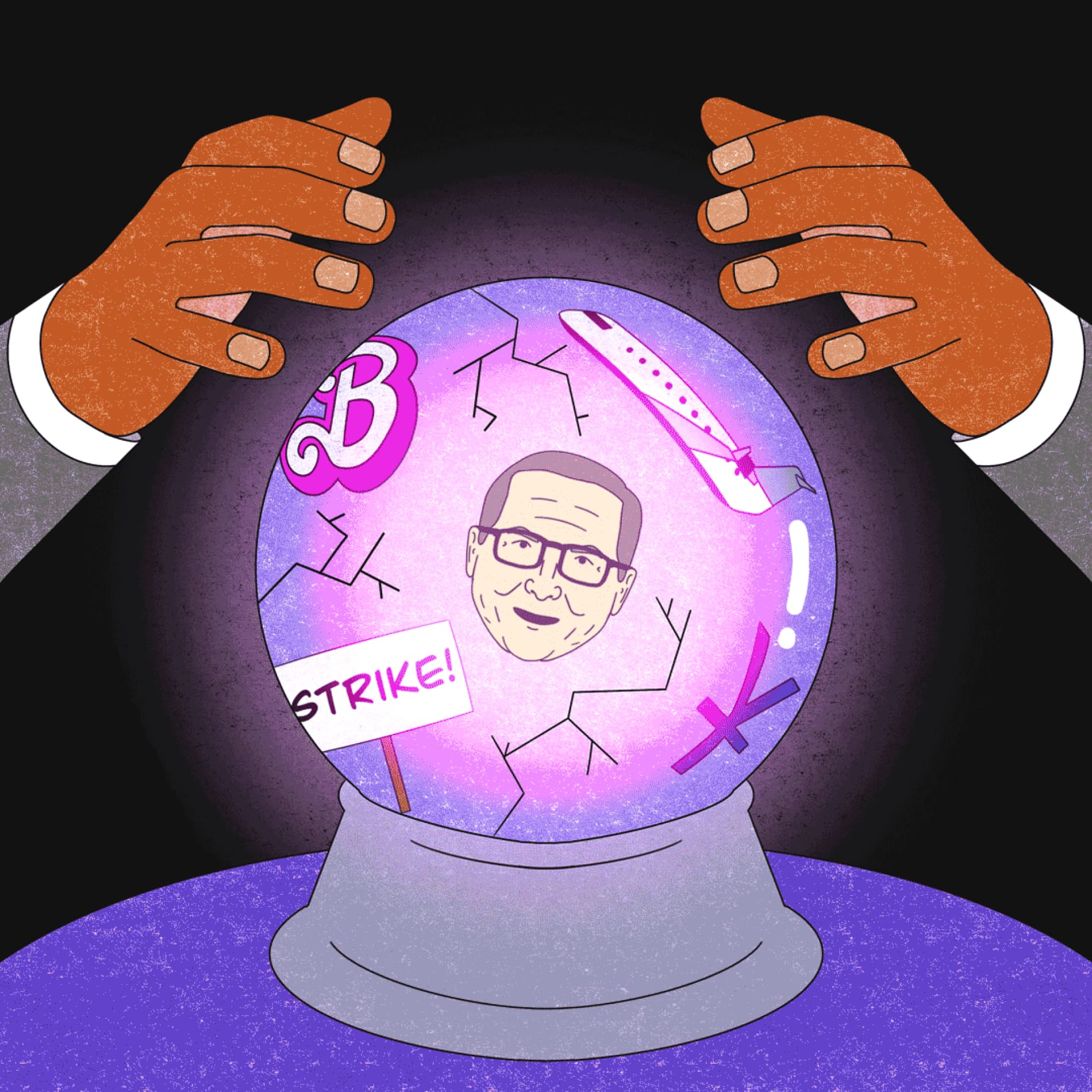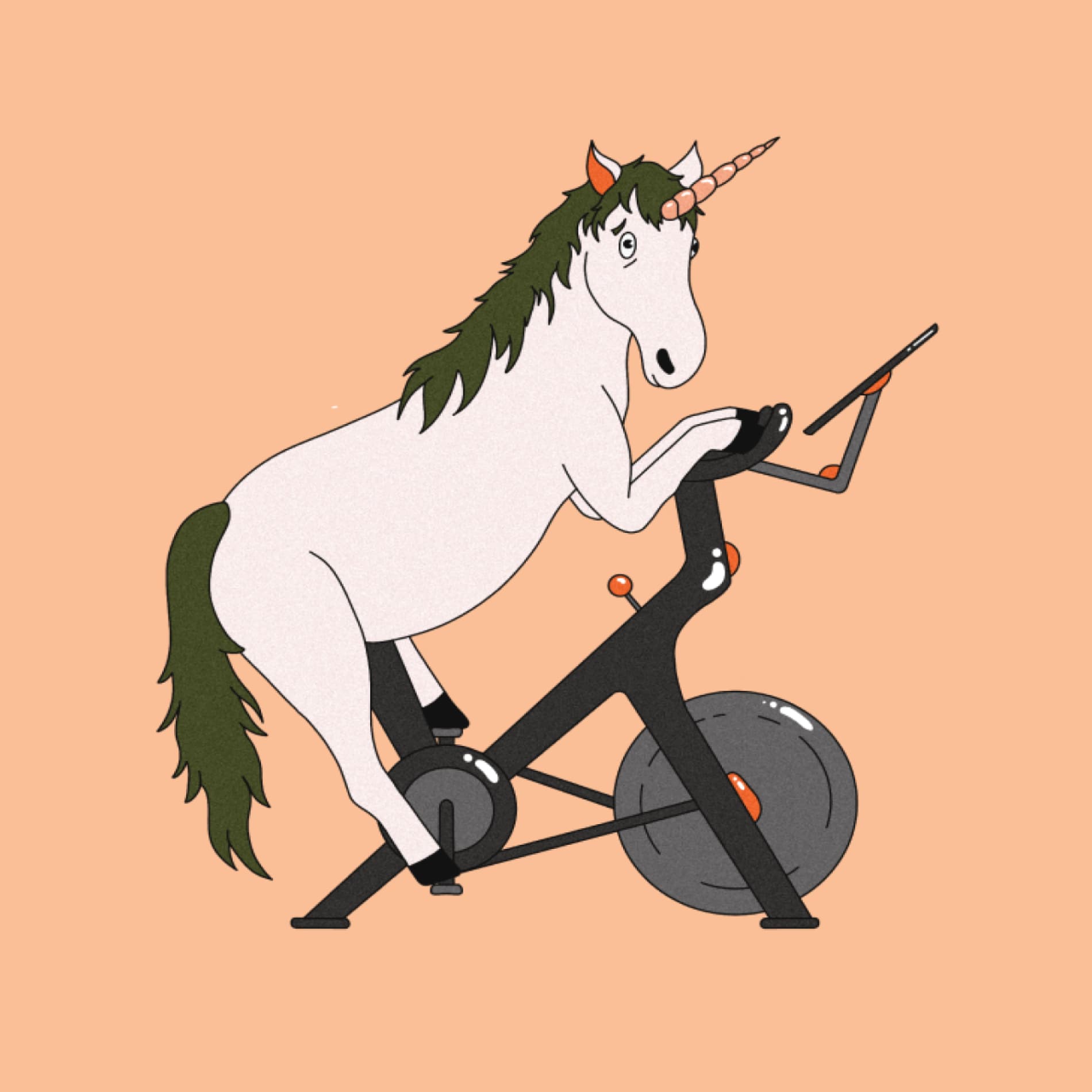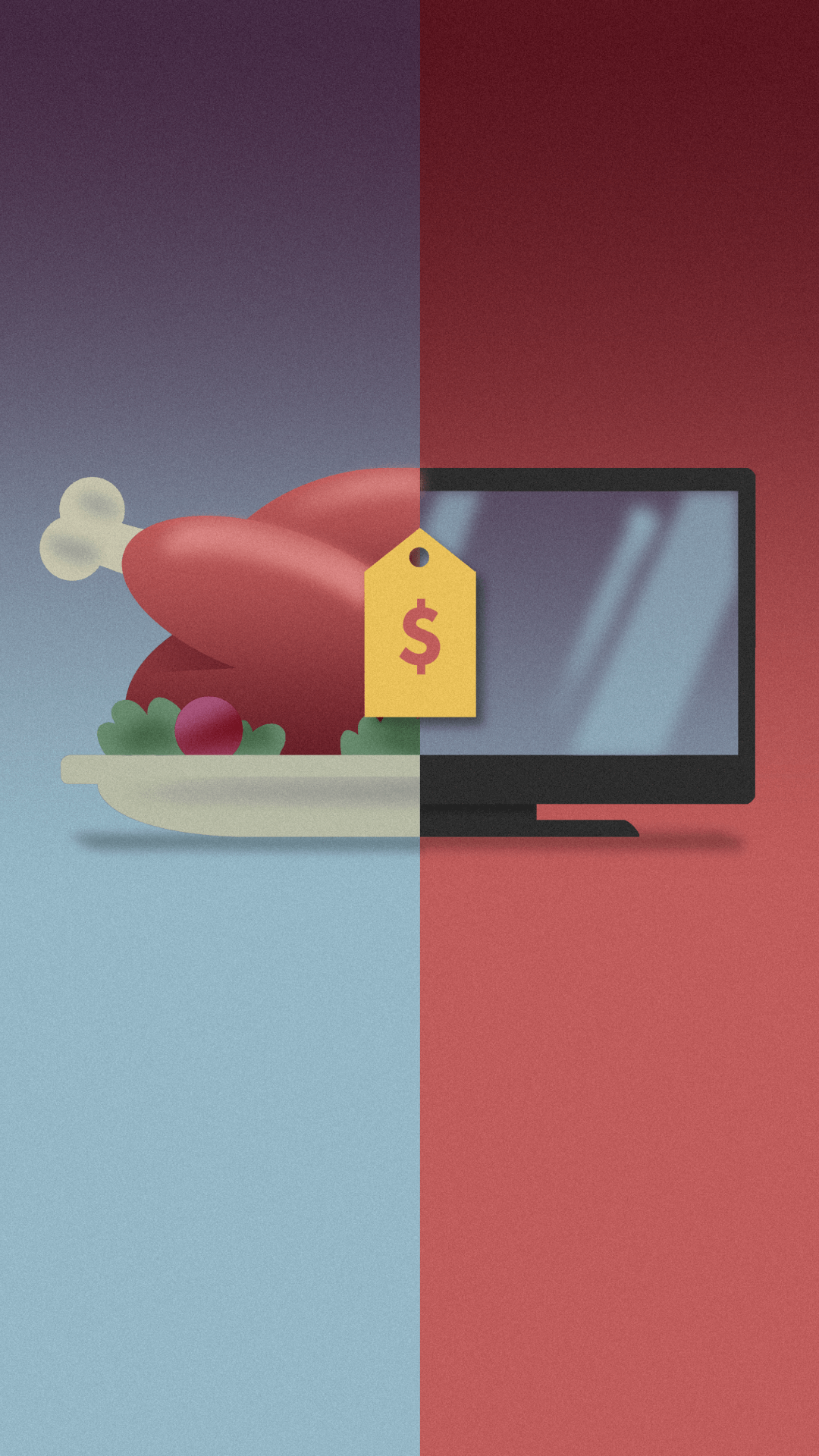
Money & the World
Why a Fancy Chicken Dinner Costs the Same as a 42-inch TV
Short-term inflation tells one story about the world at the moment. But price differences over the past 22 years tell us a different story about how the world works. And, yes, there is chicken involved.
Wealthsimple makes powerful financial tools to help you grow and manage your money. Learn more
Inflation is the economic obsession of 2022. Like: how prices climbed 4% last year. How it’s the biggest rise in decades. How housing prices are somehow even worse. How it’s been driven by a confluence of powerful forces: massive government stimulus, surging spending, a supply-chain “crisis.” And then there’s the whole Great Resignation thing going on down in the United States. The entire cultural conversation has, at moments, seemed to revolve around the rising costs of things like milk (up nearly 5% in 2021) and ground beef (+9% in ’21) and other groceries.
That’s a long-winded way of saying that inflation is real, and it’s been surprising. And rising prices will continue to affect economic-policy decisions for the foreseeable future. But we thought it would be interesting to zoom out and look at inflation rates over a longer period — the past 22 years, to be precise. (Our inspiration: Mark J. Perry’s chart of the century.) So why zoom out? Well, some of the shifts we’ve seen in our lifetimes — provided you’re not super young! — are pretty life-altering, and together they tell an interesting story about how the world has changed since Y2K.
42-inch TV vs. Pan-Roasted Chicken
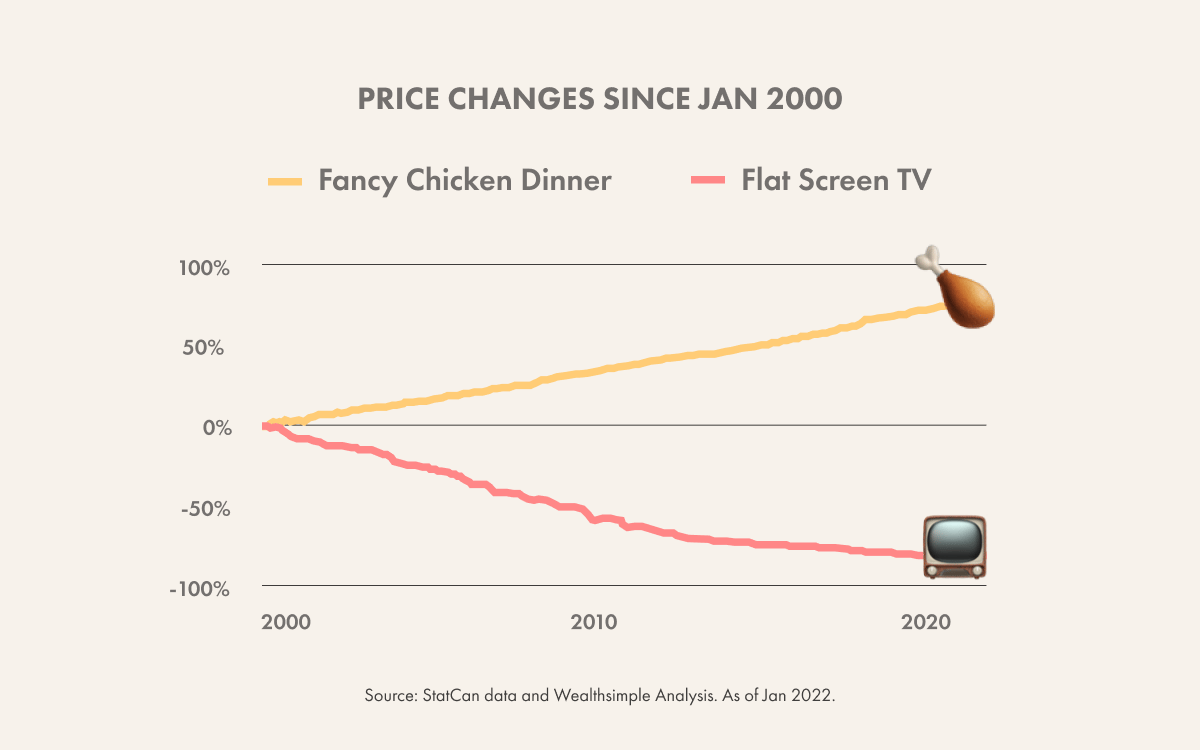
Do you remember when a 42-inch TV would set you back at least $2,000 and you basically had to be rich to buy one? That was the case back when “The X-Files” and “Buffy” were still airing each week. Now, you can get roughly the same sized screen for about $200 — 10% of the cost of the definitely crappier ye olde Y2K version. And yet, since the turn of the millennium, other things have gotten way more expensive. (And the price gains have nothing to do with the pandemic, but more on that in a moment.) Like, do you ever get the sense that a meal for two at a fancy restaurant featuring, say, roasted chicken that you will forget about in less than 12 hours costs about the same as a ticket to fly to France, or the same as a new TV for that matter? Well, you’re not wrong! Meals at sit-down restaurants have nearly doubled since 2000.
Before we explain why, let’s throw a few more examples at you:
The Condo vs. The Camera
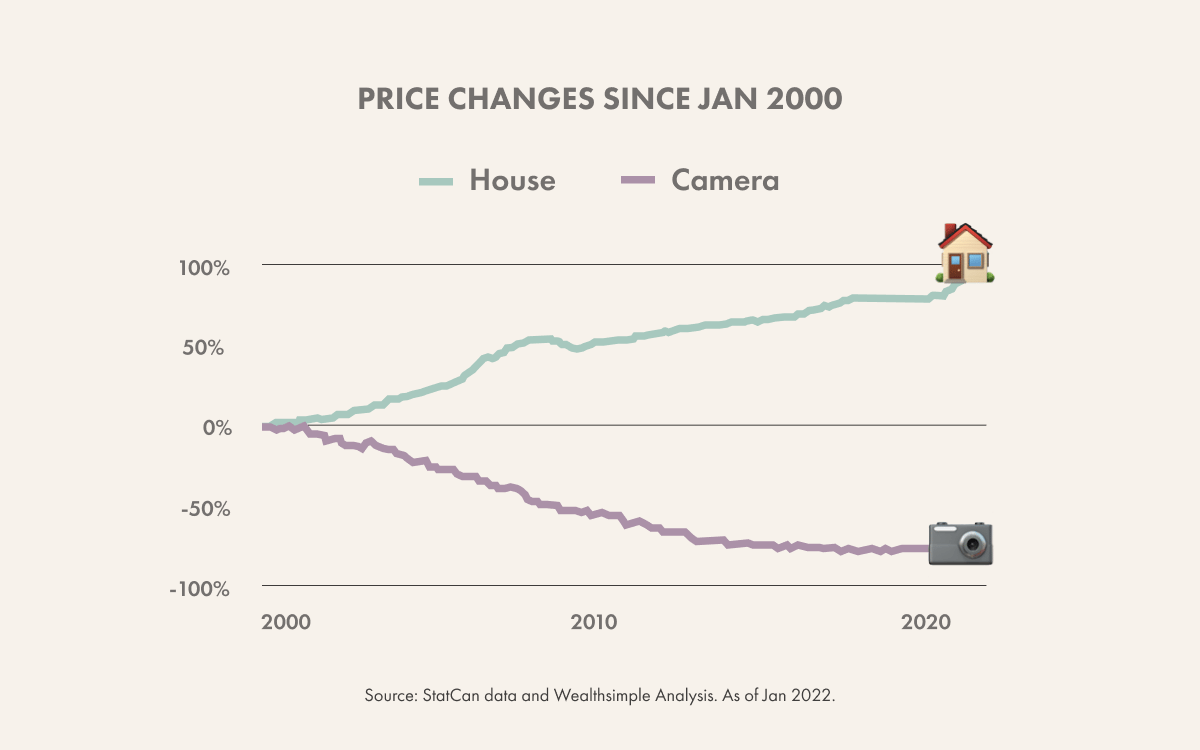
In the market for a house? Good luck. Prices in 2021 alone rose 25% in Canada, based on our analysis. But last year’s spike was just one spike on top of a much larger, longer spike: Canadian housing prices have doubled since 2001, and the rise has been even more extreme in some cities, like Toronto. If it’s any consolation, if you do manage to buy a home, it’s way cheaper to take photos of your real estate to post on Instagram to rub your good fortune in the faces of friends and colleagues. (We’re kidding; don’t do that!) Cameras are about 75% cheaper than they used to be.
The Dentist vs. Toys
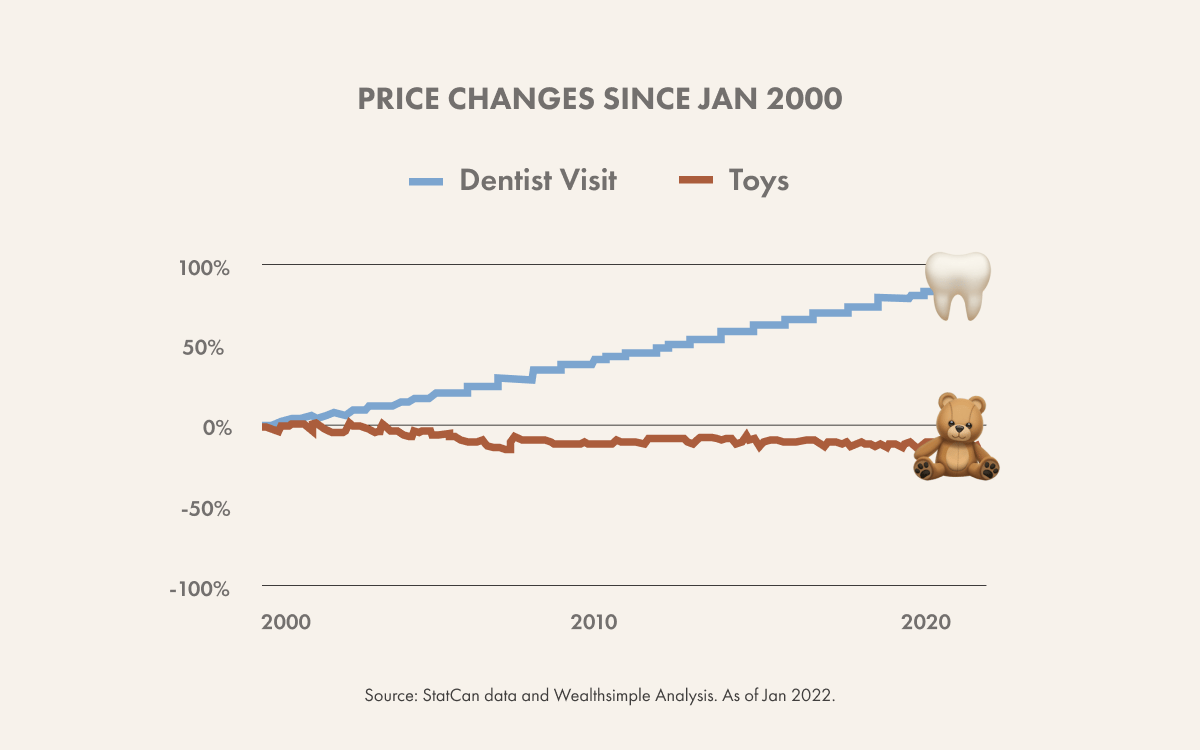
Buying your kid a toy — be it a Tickle Me Elmo or a stuffed Paddington Bear and nearly everything in between — has gotten slightly less expensive since 2000. The cost of taking your kid to the dentist if he accidentally chips a tooth falling on a toy has doubled.
Recommended for you
The Story Behind These Trends
Why tech products are less expensive
A big reason why consumer tech, like TVs and digital cameras, has gotten less expensive is that we’ve gotten way better at making the computer chips that these products run on. Get this: every two years since the late 1980s, chips have become roughly two times faster, denser, and more powerful. (Thank you, Moore’s law.) We’ve also figured out how to make these powerful chips on the cheap, hence why everything from talking dolls to refrigerators includes them now if you ask us.
What does a fancy pan-roasted chicken dinner have in common with a dentist’s visit?
That sentence sounds like the setup of a bad joke, we know. But a pan-roasted chicken dinner and a dentist’s visit do share one defining characteristic: they’re both service-intensive. That helps explain why they have both risen in price so dramatically. As consumer tech has gotten cheaper to produce, gadget-making companies like Apple and Sony have grown increasingly profitable and started paying their employees more. Well, to keep smart young people interested in becoming dentists, say, and not going into tech, clinics have to offer larger salaries to remain competitive. And those big salaries result in higher bills for the rest of us. This phenomena is called the Baumol effect. It’s a bit wonky, yes, but also makes a certain amount of sense.
OK, back to our fancy chicken dinner: an up-and-coming chef probably wasn’t weighing whether to go write code for Microsoft before she joined your favourite neighbourhood bistro — the jobs require vastly different skills. But rising costs in one service industry tend to ripple into others. As big tech salaries have driven up real-estate prices in Toronto or San Francisco, for instance, restaurants have had to pay their staffs more to keep up. And these pay increases get reflected in menu prices, then these menu prices slowly become industry norms across the country. On top of that, as things like TVs drop in price, people have become willing to spend more of their disposable income on stuff like nice dinners.
One caveat: we’re talking about macro economic trends, so things are complex. Some hot-shot tech guys, like Marc Andreesen, love to blame rising costs on government regulations, which they say stymie efforts to build much-needed homes in places like San Francisco, as well as undercut efforts to tackle other costly systemic problems. There’s probably some truth in these arguments, too. But we’re still on Team Baumol, mostly.
How the pandemic showed us the limits of tech improvements
One major thing that the pandemic has illustrated is that, though we’ve gotten way better and more efficient at making certain tech goods, like TVs, some big-ticket items still require a bunch of human involvement to produce and reach customers. And, since that’s the case, workers still exert huge influence on the price of goods — to a degree few people realized until COVID-19 hit. Vehicles are a prime example. Since 2000, we’ve learned how to make better, smarter, comparatively more affordable cars and trucks. But, when demand spikes, as it has during the pandemic, carmakers can’t just massively and quickly boost production to keep supply high and prices low, especially not when workers are sheltering in place or out sick. Technological advancements have their limit, in other words, and price shocks of the sort we’ve seen recently will occasionally happen, so long as humans still have a hand in making and bringing goods to market. Which they presumably always will to a degree.
So what about the cost of condos or dentist visits? Will that stuff ever go down? It might, actually! If somebody figures out how to 3D print houses, say, or creates robots smart enough to fix your teeth. In the meantime, at least you can afford to put a TV in every room of your rented apartment. That counts for something, right?
Matthew Karasz is the Director of Investment Research at Wealthsimple.
The content on this site is produced by Wealthsimple Media Inc. and is for informational purposes only. The content is not intended to be investment advice or any other kind of professional advice. Before taking any action based on this content you should consult a professional. We do not endorse any third parties referenced on this site. When you invest, your money is at risk and it is possible that you may lose some or all of your investment. Past performance is not a guarantee of future results. Historical returns, hypothetical returns, expected returns and images included in this content are for illustrative purposes only.
